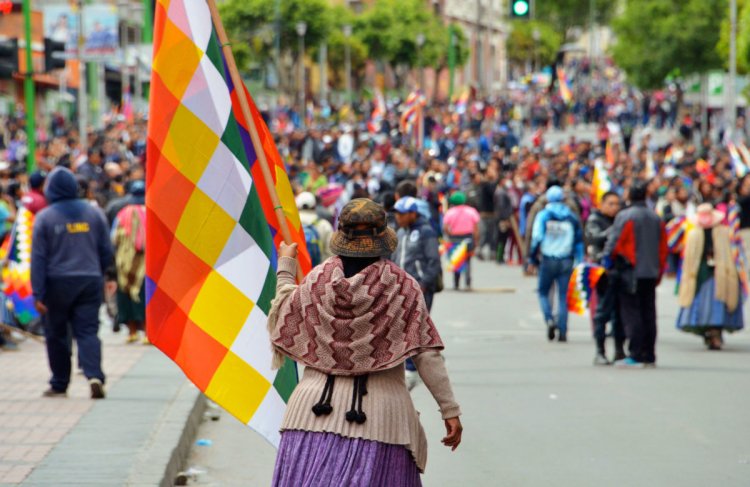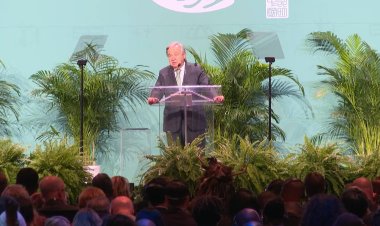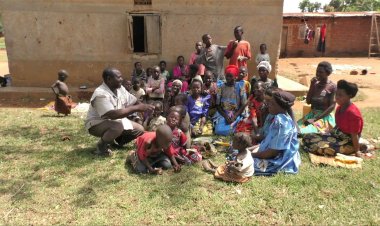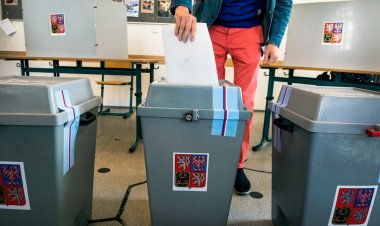Bolivians march in support of the indigenous ‘Wiphala’ flag
As political and cultural divisions deepen in Bolivia, thousands of indigenous people, mostly from rural areas, march in La Paz in support of the Wiphala, a flag used in the Andean country to represent indigenous nations.

The rally in defense of the indigenous wiphala flag is part of a nationwide mobilization spearheaded by the governing Movement Towards Socialism.
Its leader, former Bolivian president Evo Morales, has called for party members and supporters to wear a wiphala during the protest as “an act of atonement.”
The rallies will be “in defense of the homeland, of democracy, of the wiphala and of President Luis Arce,” he said.
His call comes after supporters of the far-right governor of Santa Cruz, Luis Camacho, tore down the indigenous flag last month during a celebration of the 211th anniversary of the liberation of the region, minutes after it was raised.
The action was condemned as “racist and outrageous” disrespect for Bolivia’s indigenous people’s symbols which undermined government efforts to fight discrimination.
“We thought the right wing was a coup-plotter and racist,” Mr Morales said, adding that the tearing down of the flag showed they want a “return to feudalism and slavery” in Santa Cruz.
Mr Camacho’s supporters are angered after he was summoned to explain his role in the 2019 coup with the far-right Civic Committee calling anti-government protests over the weekend.
The wiphala was recognized as a national and sacred symbol of Bolivia and the country’s dual flag along with the red-yellow-green tricolor in 2009.
It was targeted during the 2019 Washington-backed coup against Mr Morales, being ripped off government buildings and burned by protesters chanting: “Bolivia belongs to Christ.”
Scores of indigenous Bolivians were massacred in the aftermath of the coup, with the leader of the right-wing administration, Jeanine Anez, facing charges of genocide.
She mobilized the armed forces against protests in Sacaba and Senkata, during which at least 57 people were killed.
Movement Towards Socialism returned to power last October, winning a landslide in the much-delayed presidential and parliamentary elections.















